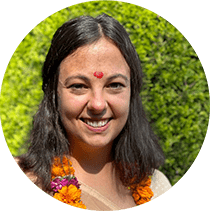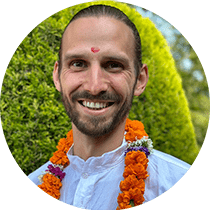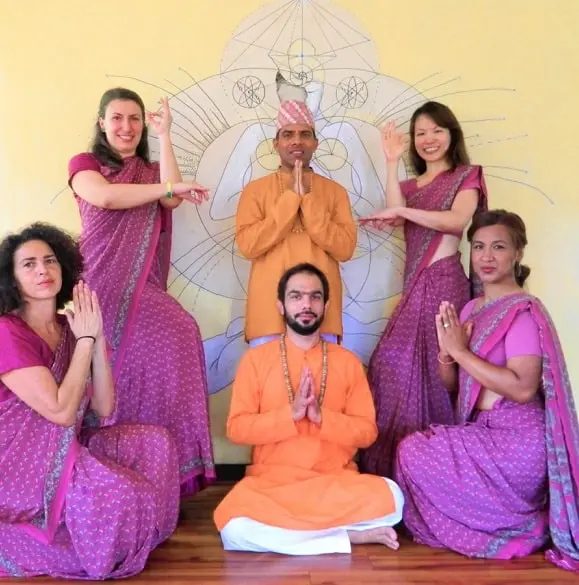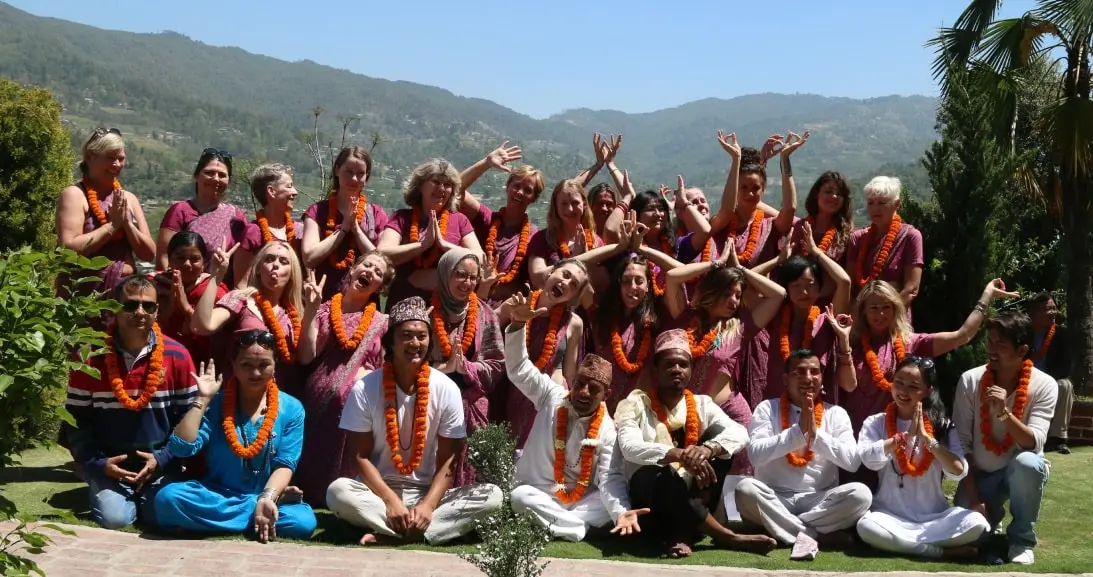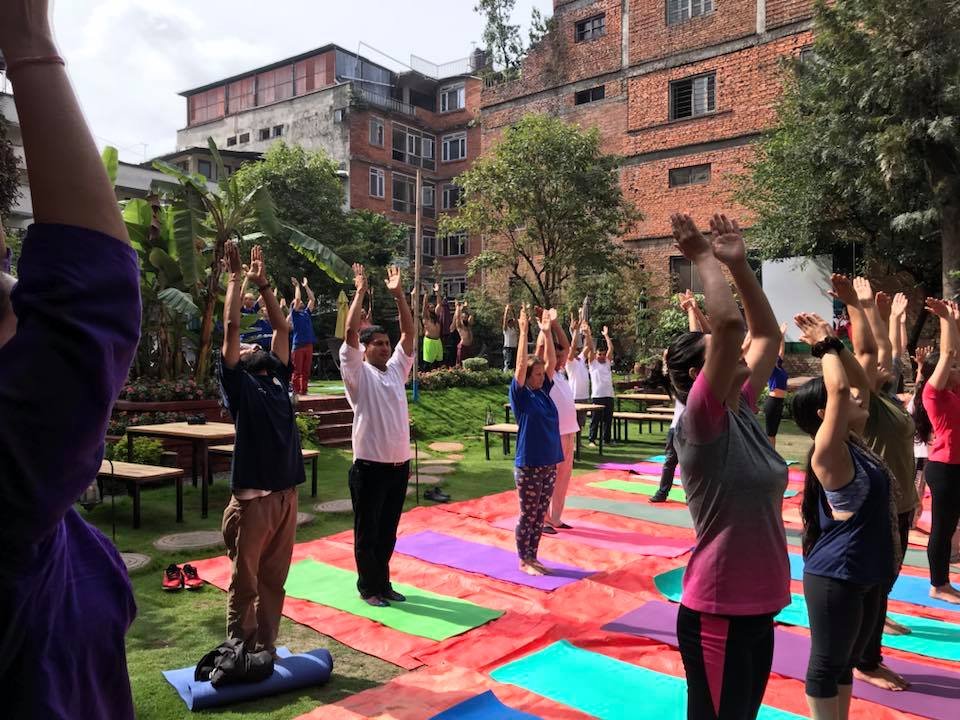100 Hours Yoga Teachers Training
By enrolling in a 100-hour Yoga Teacher Training (YTT) program, which is spread over 13 days, individuals can learn and practice yoga safely, become aware of basic rules and regulations, and understand the principles of a yogic lifestyle. The program is designed to equip participants with the fundamental skills and knowledge needed to develop a personal yoga practice and bring balance into their lives.
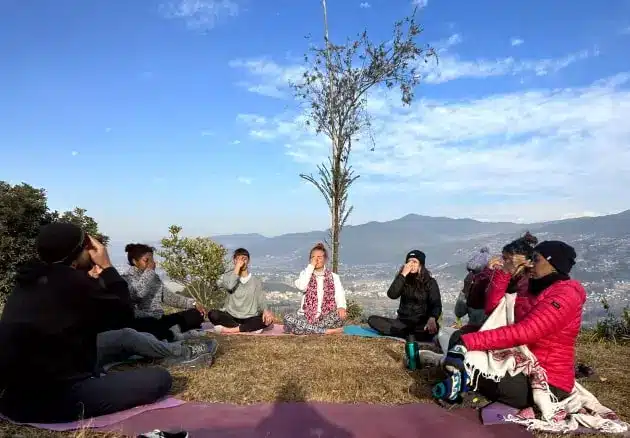
YTT 100 Hours
Yoga Teachers Training
By enrolling in a 100-hour Yoga Teacher Training (YTT) program, which is spread over 13 days, individuals can learn and practice yoga safely, become aware of basic rules and regulations, and understand the principles of a yogic lifestyle. The program is designed to equip participants with the fundamental skills and knowledge needed to develop a personal yoga practice and bring balance into their lives.

After completing our 100-hour course, students will be eligible to complete our 200-hour course online or at our Yoga Academy in Nepal. Upon completion of the entire program, participants will meet the standard requirements set by the US Yoga Alliance for RYT certification, which can provide teaching opportunities in the field of yoga..
Course Info
The 100-hour Yoga Teacher Training program at our certification school has been meticulously crafted to provide participants with a foundational understanding of yoga and facilitate their journey toward self-discovery. Our program’s practice and teaching methodology are based on classical Hatha yoga rooted in Patanjali’s Ashtanga Yoga.
The Sanatan Ashtanga-based practice incorporates all elements that aid in enhancing our lives holistically. We emphasize the integration of all eight limbs of yoga in our practice and daily routine, adhering to the traditional system of yoga. The program at our teacher training certification school provides participants with an opportunity to deepen their understanding of yoga’s perspective on life and its functioning in all dimensions.
Yoga is not merely a physical practice of bending and twisting. Still, it is a means to attain harmony between mind, body, and spirit by comprehensively understanding one’s system. It is a holistic approach to delving within oneself through practice, understanding, and acceptance. The deeper the understanding, the greater the acceptance, resulting in a more natural and relaxed state. This process involves identifying the disharmony within and skillfully releasing it using intelligence.
Why us?
Nepal, known for its tranquil geography, has been a preferred destination for many yogis and saints to pursue their practice. Nepal’s serene Himalayas, majestic mountains, meandering rivers, and lush forests create a nurturing environment for individuals to explore their inner selves.
The first impression is often considered the most lasting, and this program aims to make a solid and positive impression on participants. It offers an excellent opportunity for individuals to embark on a transformative journey amidst the breathtaking mountains of Nepal.

Inside the Course
.
Practice
- Yoga Asanas
- Pranayama
- Meditation
- Mudra & banda
- Adjustment & Alignment
- Mantra chanting
- Traditional and contemporary techniques
.
.
Anatomy and physiology
- Principles of demonstration
- Guided teaching practice
- Instruction-cueing
- Teaching styles
- The student’s process of learning
- Communication skills
- Observation & assisting
- Yoga safety guidelines
Anatomy and Physiology
Based on the student’s start date, our 100-hour course covers the introductory study of anatomy and physiology. Courses beginning on the 15th of the month will include this study, whereas courses starting on a different rotation (based on the student’s schedule) will complete the anatomy and physiology coursework in the future study as part of their 200-hour course.
- Physical anatomy & physiology
- Spiritual anatomy and physiology
- Chakras & Energy Channels
Anatomy and Physiology
- Yogic diet
- Mindset
- Ethics
Yoga Philosophy
Introductory Yoga philosophy based on authoritative texts such as Patanjali Yoga Sutras, Hatha Yoga Pradipika, Upanishads, & Bhagavad Gita
Include
- 12 nights accommodation
- 1 60-minute Ayurveda oil massage
- 1 steam bath or sauna
- 3 healthy vegetarian/vegan meals every day (breakfast, lunch, and dinner)
- Unlimited herbal tea
- Filtered Himalayan drinking water
- Wireless internet
- Yoga textbook, Yoga manual, and stationery
Schedule
6.30 AM – 7.00 AM
Meditation
7.00 AM – 7.15 AM
Jala Neti & Tea
7.15 AM – 8.00 AM
Pranayama
8.00 AM – 8.15 AM
Tea Break
8.15 AM – 9.30 AM
Asana Session
9.45 AM – 10.30 AM
Yogic Breakfast
10.30 AM – 11.30 AM
Relaxation time
11.30 AM – 1.00 PM
Philosophy Lecture
1.00 PM -2.00 PM
Lunch
2.00 PM -3.00 PM
Relaxation time
3.00 PM – 5.00 PM
Workshop
5.00 PM – 5.15 PM
Tea Time
5.15 PM – 6.45 PM
Evening Asana and Relaxation/meditation
7.00 PM – Onward
Dinner and Bedtime
Standard Room
Size: 18 m2
.
- Expansive Room Layout
- Dual Large Beds
- Spacious Bathrooms
- Hot/Cold Shower
- Dedicated Workspace
- Scenic Panoramic Views
- Free Internet
Bamboo Room
Size: 12 m2
- Spacious Rooms
- Two Separate Single Beds
- Attached Spacious Bathrooms
- Hot/Cold Shower
- Scenic Panoramic Views
- Free Internet
Costs and Dates
Yoga Teacher Training 100 Hours Certification Course is 13 days long, starting on the 15th of every month and ending on the 26th of the month.
There will be a maximum of 16 students on each course.
Room Type
Accommodation
Costs
Bamboo Cottage
Twin sharing Room Private Single Stay
USD 800
Standard Room
Private Stay (Queen Bed)
USD 900
For more detailed information about the rooms please visit the link Accommodation.
Weather
The weather in the retreat varies from season to season. During the months of December, January and February it gets quite cold especially in the mornings and in the evenings. The summer (March – June) months are warm and breezy .The rainy season (July – September) will be warm weather with occasional rain showers. Nepal has an electricity ration and scheduled power cuts are often. So
We recommend the following:
- Warm clothing for evenings and mornings (winter)
- Warm socks and hat (winter)
- Waterproof walking shoes and outdoor wear (winter and rainy season)
- Sandals for around the retreat
- A warm cardigan or blanket/shawl for meditation
- A head lamp and batteries or flashlight
- Conservative dress for temple visits; Ideally cotton conservative dress for yoga (avoid crop tops and low cut tops, shorts, and see-through clothing)
- A refillable water bottle/thermos (drinking water and tea available on site)
- An open mind
- Personal medical kit
- Mosquito and bug repellents (summer and rainy season)
- Personal toiletries
Code of conduct
Like you, our other guests and students come to our retreat to recharge, meditate, practice yoga & meditation, study, find peace, and relax. To make the most of your stay, we ask that you carefully read our code of conduct so that all guests and students have the most serene and tranquil experience at Nepal Yoga Academy. We ask that you offer the love and respect you wish in return. We hope you have a pleasant stay.
Reviews
Read what your friends think about us:.
Our Photo Gallery
Visit our beautiful center and the photos we’ve taken during our course to decide for yourself.
We are waiting for you to take this transforming journey with us in the birthplace of Yoga.
FAQs
For more queries write to us or visit our FAQ section!
After completing our 100-hour course, students will be eligible to complete our 200-hour course online or at our Yoga Academy in Nepal. Upon completion of the entire program, participants will meet the standard requirements set by the US Yoga Alliance for RYT certification, which can provide teaching opportunities in the field of yoga.
Course Info
The 100-hour Yoga Teacher Training program at our certification school has been meticulously crafted to provide participants with a foundational understanding of yoga and facilitate their journey toward self-discovery. Our program’s practice and teaching methodology are based on classical Hatha yoga rooted in Patanjali’s Ashtanga Yoga.
The Sanatan Ashtanga-based practice incorporates all elements that aid in enhancing our lives holistically. We emphasize the integration of all eight limbs of yoga in our practice and daily routine, adhering to the traditional system of yoga. The program at our teacher training certification school provides participants with an opportunity to deepen their understanding of yoga’s perspective on life and its functioning in all dimensions.
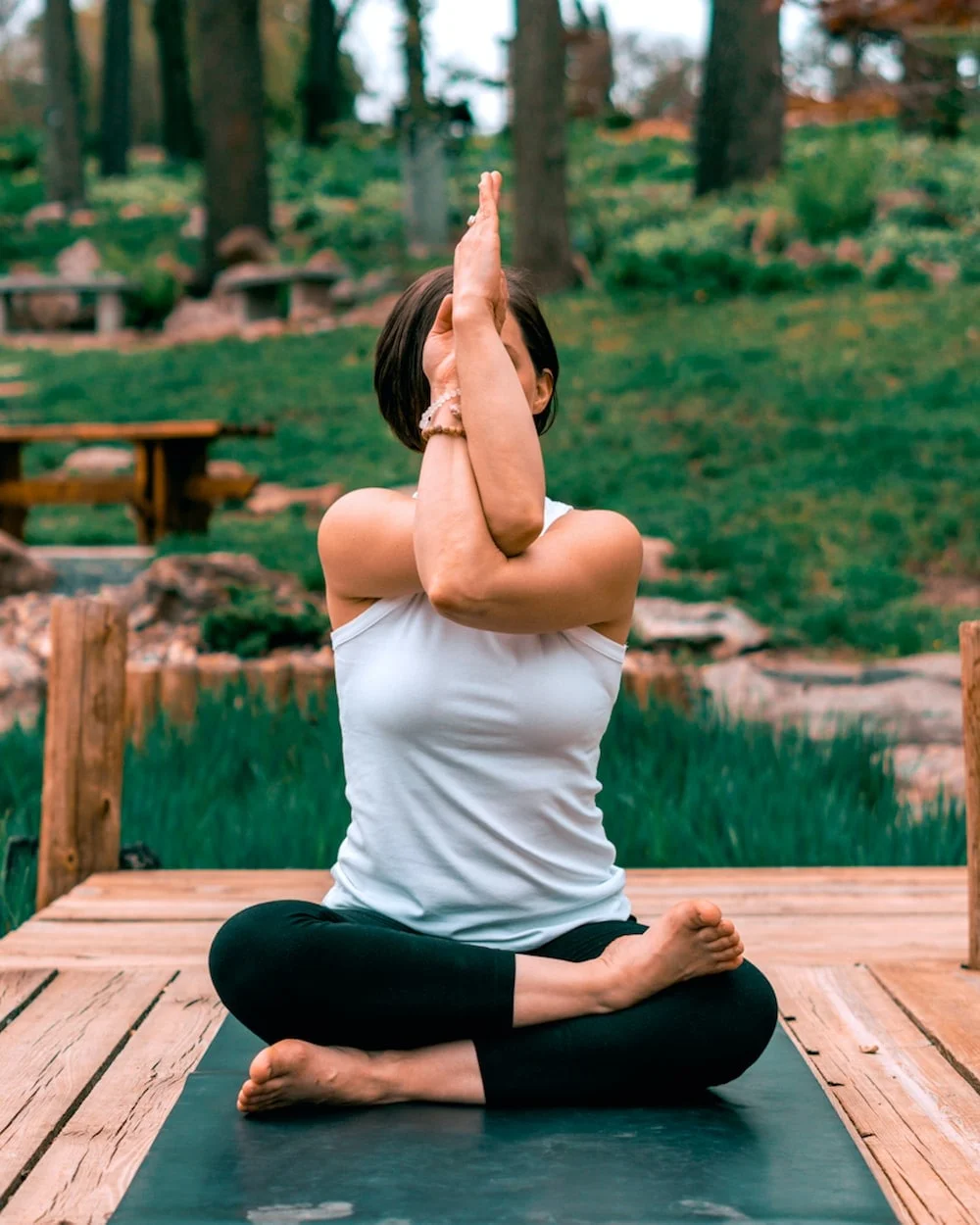
Yoga is not merely a physical practice of bending and twisting, but it is a means to attain harmony between mind, body, and spirit by gaining a comprehensive understanding of one’s own system. It is a holistic approach to delving within oneself through practice, understanding, and acceptance. The deeper the understanding, the greater the acceptance, resulting in a more natural and relaxed state. This process involves identifying the disharmony within and skillfully releasing them using intelligence.

Why us?
Nepal, known for its tranquil geography, has been a preferred destination for many yogis and saints to pursue their practice. Nepal’s serene Himalayas, majestic mountains, meandering rivers, and lush forests create a nurturing environment for individuals to explore their inner selves.
The first impression is often considered the most lasting, and this program aims to make a solid and positive impression on participants. It offers an excellent opportunity for individuals to embark on a transformative journey amidst the breathtaking mountains of Nepal.


Inside the Course
Practice
- Yoga Asanas
- Pranayama
- Meditation
- Mudra & banda
- Adjustment & Alignment
- Mantra chanting
- Traditional and contemporary techniques
Teaching methodology
- Principles of demonstration
- Guided teaching practice
- Instruction-cueing
- Teaching styles
- The student’s process of learning
- Communication skills
- Observation & assisting
- Yoga safety guidelines
Anatomy and physiology
Based on the student’s start date, our 100-hour course covers the introductory study of anatomy and physiology. Courses beginning on the 15th of the month will include this study, whereas courses starting on a different rotation (based on the student’s schedule) will complete the anatomy and physiology coursework in the future study as part of their 200-hour course.
- Physical anatomy & physiology
- Spiritual anatomy and physiology
- Chakras & Energy Channels
Principles of Yoga Lifestyle
- Yogic diet
- Mindset
- Ethics
Yoga Philosophy
Introductory Yoga philosophy based on authoritative texts such as Patanjali Yoga Sutras, Hatha Yoga Pradipika, Upanishads, & Bhagavad Gita
Include
- Accomodation
- 1 60-minute Ayurveda oil massage
- 1 steam bath or sauna
- 3 healthy vegetarian/vegan meals every day (breakfast, lunch, and dinner)
- Unlimited herbal tea
- Filtered Himalayan drinking water
- Wireless internet
- Accommodation for 12 nights *
- Yoga textbook, Yoga manual, and stationery
Schedule
6.30 AM
7.00 AM
Meditation
7.00 AM
7.15 AM
Jala Neti & Tea
7.15 AM
8.00 AM
Pranayama
8.00 AM
8.15 AM
Tea Break
8.15 AM
9.30 AM
Asana Session
9.45 AM
10.30 AM
Yogic Breakfast
10.30 AM
11.30 AM
Relaxation time
11.30 AM
1.00 PM
Philosophy Lecture
1.00 PM
2.00 PM
Lunch
2.00 PM
3.00 PM
Relaxation time
3.00 PM
5.00 PM
Workshop
5.00 PM
5.15 PM
Tea Time
5.15 PM
6.45 PM
Evening Asana and Relaxation/meditation
7.00 PM
Onward
Dinner and Bedtime
Accommodation Types
Costs and Dates
Yoga Teacher Training 100 Hours Certification Course is 13 days long, starting on the 15th of every month and ending on the 26th of the month.
There will be a maximum of 16 students on each course.
Room Type
Accommodation
Costs
Bamboo Cottage
Twin sharing Room Private Single Stay
USD 800
Standard Room
Private Stay (Queen Bed)
USD 900
For more detailed information about the rooms please visit the link Accommodation.
Weather
The weather in the retreat varies from season to season. During the months of December, January and February it gets quite cold especially in the mornings and in the evenings. The summer (March – June) months are warm and breezy .The rainy season (July – September) will be warm weather with occasional rain showers. Nepal has an electricity ration and scheduled power cuts are often. So
We recommend to bring the following:
- Warm clothing for evenings and mornings (winter)
- Warm socks and hat (winter)
- Waterproof walking shoes and outdoor wear (winter and rainy season)
- Sandals for around the retreat
- A warm cardigan or blanket/shall for meditation
- A head lamp and batteries or flashlight
- Conservative dress for temple visits; Ideally cotton conservative dress for yoga (avoid crop tops and low cut tops, shorts, and see-through clothing)
- A refillable water bottle/thermos (drinking water and tea available on site)
- An open mind
- Personal medical kit
- Mosquito and bug repellents (summer and rainy season)
- Personal toiletries
Code of conduct
Like you, our other guests and students come to our retreat to recharge, meditate, practice yoga & meditation, study, find peace, and relax. To make the most of your stay, we ask that you carefully read our code of conduct so that all guests and students have the most serene and tranquil experience at Nepal Yoga Academy. We ask that you offer the love and respect you wish in return. We hope you have a pleasant stay.
Read what your friends think about us:
Our Photo Gallery
Visit our beautiful center and the photos we’ve taken during our course to decide for yourself.
We are waiting for you to take this transforming journey with us in the birthplace of Yoga.
FAQs
For more queries write to us or visit our FAQ section!




